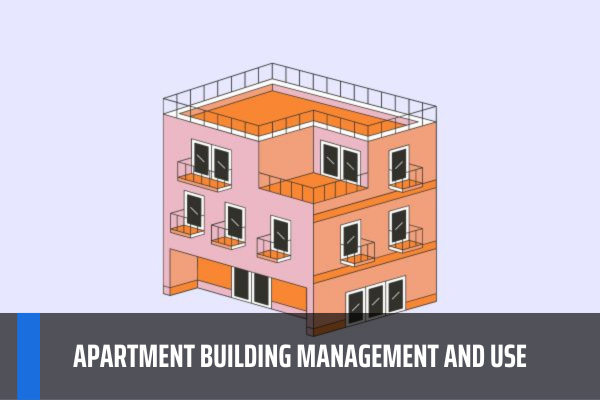What are apartment buildings in Vietnam under the Law on Housing 2023? What are the prohibited actions in apartment building management and use?
What are apartment buildings in Vietnam under the Law on Housing 2023?
Pursuant to the provisions of Clause 3, Article 2 of the Law on Housing 2023, there is a definition of apartment buildings as follows:
Apartment buildings refer to buildings with at least 02 storeys, multiple dwelling units, common staircases and common walkways, private property and common property, common infrastructures and amenities for use by households, individuals, and organizations, including apartment buildings built for residential purposes and apartment buildings built for mixed-use purposes.
Thus, apartment buildings are understood according to the definition above. Apartment building owners refer to owners of dwelling units and owners of areas other than dwelling units in apartment buildings.

What are apartment buildings in Vietnam under the Law on Housing 2023? What are the prohibited actions in apartment building management and use?
What are the prohibited actions in apartment building management and use in Vietnam?
In Clause 8, Article 3 of the Law on Housing 2023, there are regulations on prohibited acts in the management and use of apartment buildings as follows:
- failing to incur maintenance fees for common property of apartment buildings (hereinafter referred to as “maintenance fees”); managing, using management, operation, or maintenance fees in a manner that violates housing laws;
- intentionally causing damp; causing noise or vibration higher than the permissible value; disposing refuge, wastewater, emission, or toxic substances in a manner that violates environmental protection laws or apartment building management and use regulations; painting or decorating exterior of dwelling units or apartment buildings in a manner that violates design and architecture regulations; raising, herding livestock, poultry; slaughtering livestock within the vicinity of apartment buildings;
- Intentionally changing occupancy, use purposes of common property of apartment buildings; using dwelling units for purposes other than residential; altering or damaging load-bearing elements; separating or splitting dwelling units without permission of competent authorities;
- Intentionally using area and equipment under joint ownership for personal gain; altering purposes of service area in mixed-use apartment buildings without permission for repurposing of competent authorities;
- Causing disorder, loss of safety, fire, explosion in apartment buildings; trading combustible materials or engaging in lines of business that threaten lives, property of apartment building occupants in accordance with fire safety laws and other relevant law provisions;
- Engaging in discotheque, karaoke, bar business; engaging in repair of motorized vehicles; engaging in other contaminating lines of business in accordance with environmental protection laws; engaging in restaurant business without complying with fire safety requirements, without preparing means of egress, or without complying with other business conditions as per the law.
What are the cases of apartment buildings for mandatory demolition in Vietnam?
Pursuant to the provisions in Article 59 of the Law on Housing 2023 as follows:
Apartment buildings for mandatory demolition
1. Apartment buildings subject to mandatory demolition under Clause 2 of this Article include:
a) Apartment buildings which have lifespan expired in accordance with Article 58 hereof and are subject to mandatory demolition;
b) Apartment buildings which have lifespan not expired in accordance with Article 58 hereof but are subject to mandatory demolition.
2. An apartment building shall be subject to mandatory demolition if:
a) The apartment building is damaged by fire and no longer satisfies safety requirements for further use;
b) The apartment building is damaged by natural disasters or foreign threats and no longer satisfies safety requirements for further use;
c) The apartment building have primary load-bearing elements which have shown general dangerous states, are prone to collapse, do not qualify for further use, or warrant immediate evacuation of owners and users of apartment buildings;
d) The apartment building is severely damaged, experiencing localized dangerous states of primary load-bearing elements, having technical infrastructures for fire safety, water supply, water drainage, electricity supply, local traffic not satisfactory to applicable technical standards and regulations, or potentially suffers from loss of safety during operation and use, requires demolition for safety of owners and users of apartment buildings and compliance with urban renovation and improvement requirements;
dd) The apartment building has any of the following primary structural elements: foundation, pillars, walls, girders, beams damaged, does not qualify for regular use, is not subject to mandatory demolition in accordance with Points c and d of this Clause, is located in areas where the apartment building must match apartment buildings subject to mandatory demolition under this Clause according to approved construction planning.
Thus, an apartment building will be demolished when it falls into the cases in Clause 2 above.
The Law on Housing 2023 takes effect from January 1, 2025.
LawNet